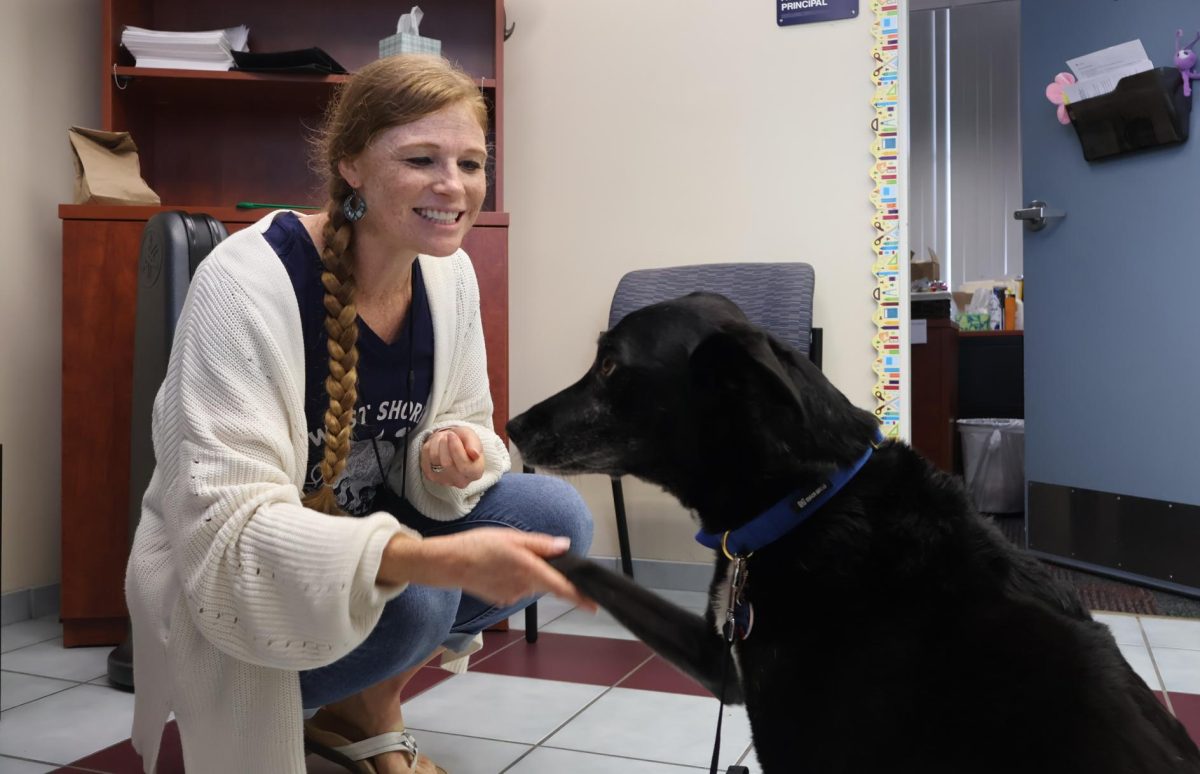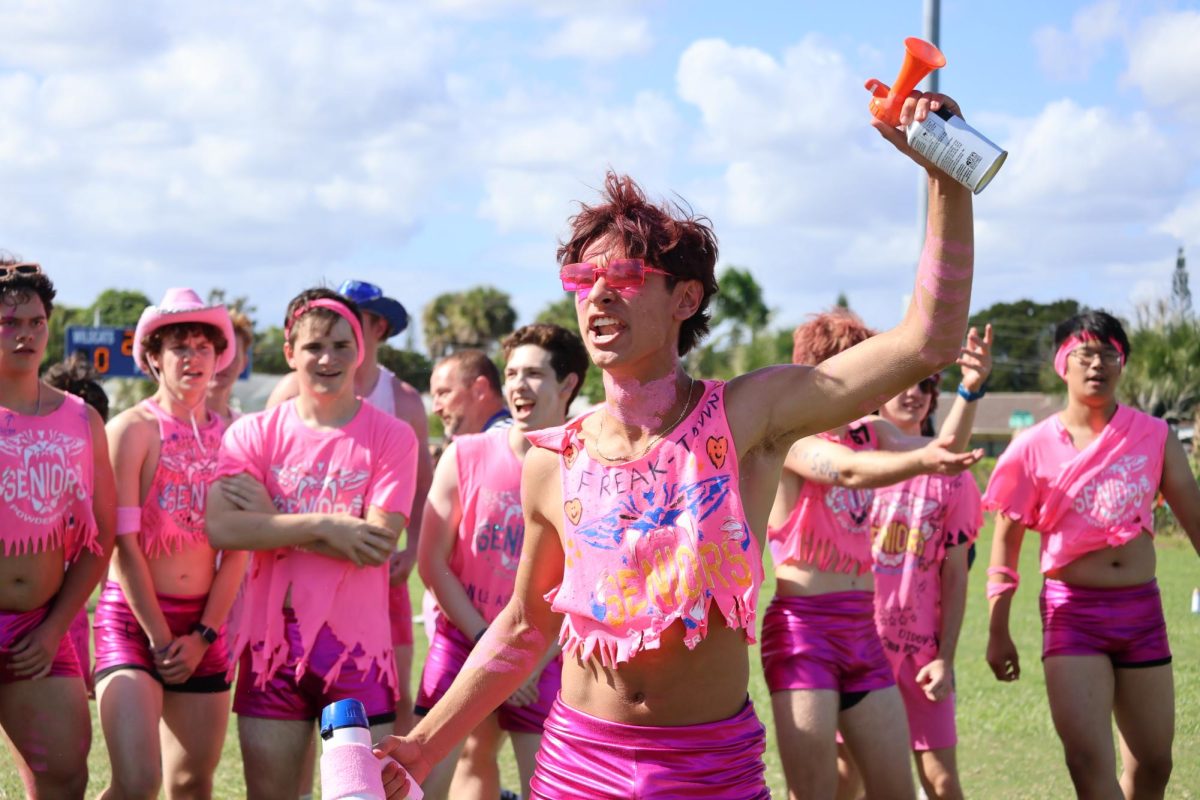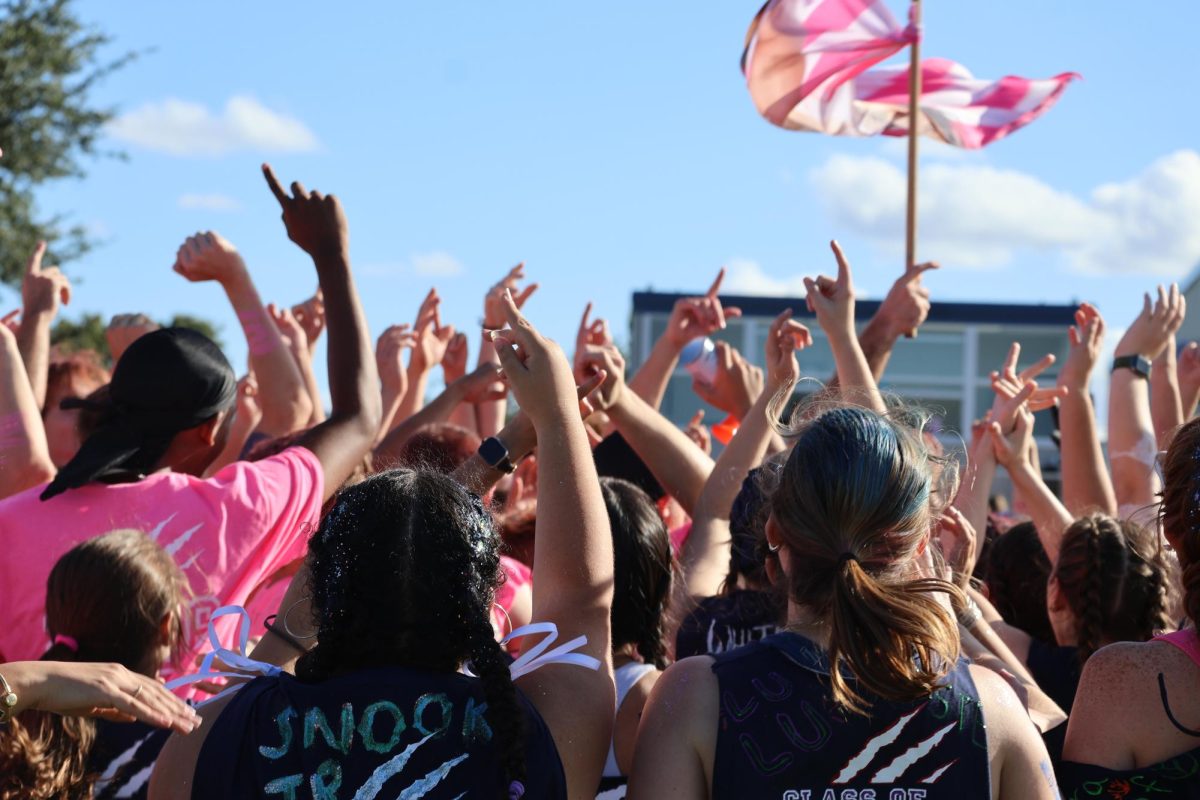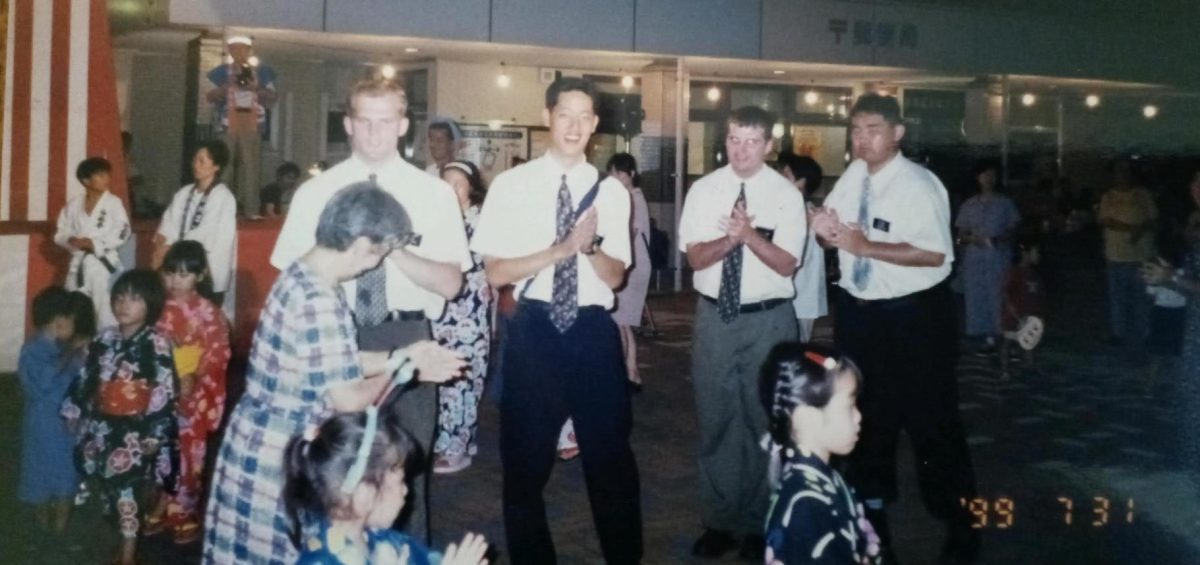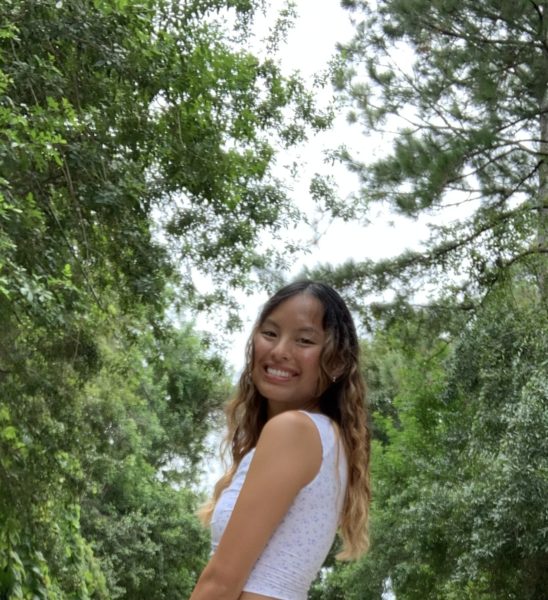Senior Asher Carver opened his missionary portal anticipating a status update that would inform him where he would be sent on a mission trip. However, unlike most of his peers waiting for their college decisions, Carver discovered he was called to serve in Kobe, Japan to spread the word of the Church of Jesus Christ of Latter-Day Saints [LDS].
“Opening the mission call was really nerve-wracking and emotional because you want to know where you’re going to go,” he said. “But I trusted the process. It was in God’s hands, and I was really at peace with wherever I went.”
Asher has wanted to go on a mission trip since he was eight years old.
“I was really young, and that has always been my goal,” Asher said. “The mission trip is an opportunity to build my faith. I think it’s also an opportunity to learn and grow. To me, I know this is my truth, so I want to share it with other people.”
Asher said there is “no point in waiting” to go on a mission trip since male LDS members become eligible once they are at least 18 years old and have graduated high school. Most missionaries are under 25 years old. LDS had 411 missions internationally as of 2022.
“Typically, guys and girls want to enjoy being graduated, go to college without their parents and then go on a mission,” he said. “The sooner I leave, the sooner I get back and I can just steam through college and do what I want to do. Guys are more invited to go on missions than girls. Girls have to be 19 to go, and it is more optional for them. Even if I was not invited, I would still want to go, though.”
Asher started working on the application in January.
“To go on a mission trip, you have to first meet with your bishop to begin the process with you,” Asher said. “So besides being worthy to go on a mission, which means you’re following all the commandments — like you are not stealing — you have to then get your wisdom teeth removed. You do not want to have medical problems on the trip.”
Asher will travel to Provo, Utah on July 17 for two months to prepare for the Kobe Mission. The mission will be 22 months, and he will be twenty years old at its completion. Afterwards, he plans to attend college and get a degree in biomedical or health sciences on the pre-medical track to become a trauma surgeon.
“At the missionary training center, I will spend my time learning some of the lesson plans and learning Japanese,” he said. “Teaching lessons is the goal as a missionary, but they teach you those plans, teach you how to draw closer to Christ and those sorts of things. By the time I’m 26, 25, hopefully I’ll be in residency as a trauma surgeon.”
Asher will transfer areas with a companion every six weeks. The companion also changes every few weeks.
“You move areas sometimes, or sometimes you’ll stay in the same place,” Asher said. “The companion is like a roommate. You guys pretty much do everything together. They will always be the same gender. Each city has their own missionaries. But if it’s a larger mission, sometimes they’ll cover multiple cities. They try to keep a lot of Japanese missionaries in Japan, but there’s a good chance I’ll have somebody from Brazil or something.”
The payment for the mission comes from Asher’s family. Asher said that the cost is the same for everyone regardless of where they are in the world, which is around $200 a month. Out of that, missionaries get a certain amount for food, supplies and rent for an apartment.
“For example, it might be cheaper to live in Mexico than perhaps in America,” he said. “I could buy a lot of food for cheap over in Mexico and the rent. But it is nice because it’s the same for everybody each month, and a lot of it is subsidized by the church. They’re kind in doing that because it’s not cheap. It’s not a crazy amount, but it’s a lot of money. If you can’t pay, the church will work with you.”
The Kobe Mission will last 22 months. Asher said he suspected he would go to Japan because he is a dual citizen in Japan and America.
“Because visas are a huge problem and getting a visa to Japan is a hard thing to do these days, it made sense for me to go,” Asher said. “Some missionaries that are just American have to wait six months to get a visa. It was also tricky for me because proving my Japanese citizenship took some time. I had to get the information sent from Japan. Once I am 21 I will have to pick, and I’m picking American citizenship.”
Asher said coming in contact with people is enabled by a variety of sources but most often member referrals. Tracking is asking people around if they want to learn about the gospel. Sometimes they will teach a set lesson and set up a date with individuals at a church building or wherever they are comfortable.
“If church members meet somebody that’s interested in the gospel, and they’re like ‘Would you like to meet some missionaries?’ that’s a way to get in contact,” Asher said. “We started doing more social media promotion during COVID-19, especially because nobody was able to leave their house. Sometimes we knock on doors. We can also walk around the park or something and ask somebody if they’d like to learn more about our religion.”
Asher said he is most nervous about not being successful.
“I don’t want to get stuck in a routine, I want to grow and help others,” he said. “ I don’t want to mess up. You want to try to be as humble, charitable and loving as you can. That’s a little bit of a hard thing to do sometimes. Always put a smile on your face. Always be kind to somebody, You grow to fill the shoes of that expectation because it’s a huge huge pair of shoes, honestly.”
Asher’s father Matthew Carver was sent on a mission trip to Fujisaki, Japan when he was 19 years old in December 1999. He went to Provo, Utah to train with over 3,000 other missionaries for two months to learn Japanese and how to teach people his faith. Matthew said the people he met in Japan were invaluable.
“I got to help people find faith and go to charitable orphanages where we would go in and clean the floors and do their weeds outside,” Matthew said. “We got to go help older families in retirement facilities over there and work with mentally handicapped people. Meeting Japanese people and getting to hear their stories was really neat.”
Matthew said Asher is unique for making his own choice. Matthew met his wife on his mission. Matthew was born in Okinawa, Japan in 1979 on a military base as an American citizen. Matthew grew up in Florida when he was a baby.
“Even though his mother and I served on a mission and talked about it a lot, Asher has always had that desire to go and serve and do good things for people,” Matthew said. “He loves people. He loves trying to help people and make their lives better. I taught him about what I believe in and what my faith is, but he ultimately made that decision because he felt that when you’re serving others, you’re serving God.”
Asher’s mother was a convert in her thirties, and Matthew was born into the church.
“I believe in the church and the gospel because I was brought up that way, and I found for myself it to be true,” Asher said. “A huge aspect in our religion is that even if you’re raised in the church, you have to find out for yourself if you want to believe in it. It’s a combination of reading my scriptures, praying and just testing it. So I think all of my upbringing and all of everything I’ve been through in my life has led me and helped build my faith in the church.”
Asher said the trip will give him an opportunity to appreciate his mother’s heritage. His mother moved to the United States in her thirties and changed her Japanese citizenship to American citizenship.
“My mother was one of three, but sadly her mother passed away,” Asher said. “That’s always been hard because we are detached from our family in Japan. It’s harder to relate for both of us. English is her third language, so it’s hard to convey what she wants to convey. You have so much more comfort in your own language, so hopefully once I learn Japanese I can communicate better with her.”
Asher said although there is a language barrier to overcome, he thinks actions speak louder than words.
“I have time to work on it and learn, and oftentimes you’re guided and directed when you’re serving a mission,” he said. “You’re preaching the word of God, so sometimes you get led by God. You’re not just trying to ‘come join our church’ type thing, you’re trying to just uplift people. You’re trying to spread the gospel, serve others and express Jesus’ love for people.”
Matthew said that he is proud of Asher for what he is doing.
“As a dad, you want your kids to be selfless,” Matthew said. “I was young once and had dreams of what I wanted to do. But after my mission, my plans changed. Ever since Asher was young, he saw me go through my master’s degree, so he knows the importance of school. School is always going to be there, but nothing can ever replace what he’s going to do. Inside, it changes you so much.”
Asher said he thinks the trip is special because his parents paved the way for him.
“It’ll be a different experience because I’m not going to the same place they were serving at,” he said. “I’m going to Japan, but there’s multiple different areas to serve in Japan. While I’m not in the same area as them, I think that just their experience is helping me understand what it’s kind of going to be like.”
Matthew said the most precious part of his mission was helping to change people’s lives and hearts. He instilled that value in Asher.
“Sometimes, you meet people there that didn’t have a lot of hope,” Matthew said. “When they heard our message, they felt like it was a message of joy, peace and comfort, and it changed their life. I taught Asher that the gospel of Jesus Christ changes people’s hearts and changes their lives. It makes them better spiritually and physically.”
Asher sees this mission as a way to transition into adulthood.
“You’re serving, but it’s going to be hard to leave my family,” Asher said. “You’re still allowed to call your family on key days and preparation days, but you’re not with your mom and dad all the time. Mom and dad aren’t telling you to clean your room. You have to do that on your own. Mom and dad are not going to cook for me. I try to cook by myself anyways now. You have to act like an adult, and you’re living a higher standard on top of that. That’s a missionary.”
Asher said he is blessed to have the church in his life and a supportive family.
“I know my church is a true church, and I know that it is God’s church here on this earth,” he said. “I believe that Jesus did die for me and that he was resurrected on that third day. We have triumph over death because of him, and we have all these things. I know that God is my heavenly father, and I know that we are all children of him. I’m really grateful for having scriptures in my life because the word of God is a powerful thing.”


![Sophomore Isabelle Gaudry walks through the metal detector, monitored by School Resource Officer Valerie Butler, on Aug. 13. “I think [the students have] been adjusting really well," Butler said. "We've had no issues, no snafus. Everything's been running smoothly, and we've been getting kids to class on time.”](https://westshoreroar.com/wp-content/uploads/2025/08/IMG_9979-1200x800.jpg)



















